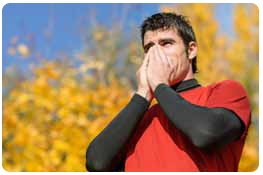
Your physician has said you have exercise-induced asthma (EIA). Can physical therapy benefit you? Absolutely! The key is to find ways of working out that minimize the opportunity for an asthma attack to occur. Interestingly, symptoms most often arise five to 20 minutes after a workout, rather than during one. Along with your physician, we can suggest the following strategies to prevent an asthma attack from occurring:
- Engage in water workouts. Exercising in a pool means you breathe air that is humid rather than dry. Moist air helps prevent symptoms like wheezing, coughing and shortness of breath. Swimming or water aerobics are possible options.
- Choose your exercise location carefully. Because an indoor venue can often be controlled for humidity, it is often preferable to an outdoor one. This is especially true in cool or cold, dry weather.
- Avoid allergens. If you know or suspect that certain airborne allergens increase your chances of an EIA attack, do not exercise outdoors during seasons when those allergens are present.
- Team up. It is less likely that you will suffer an attack after short bursts of activity—as in team sports such as softball or volleyball—than after team or individual sports, such as running or basketball, during which you are constantly moving.
- Use effective breathing therapies. We can teach you techniques you can perform before, during and after a workout that will help control your symptoms, aid with relaxation, clear mucus and regulate breathing patterns.
- Use medications judiciously. To prevent an attack, discuss with your physician the possibility of using an inhaled bronchodilator prior to exercise. Always have a rescue inhaler on hand for an emergency.
- Take time to warm up and cool down. This is important for all athletes, but especially for those with EIA.
Fifteen percent of athletes on the 1996 U.S. Summer Olympic team had asthma, which is almost twice the national average; nearly one-quarter of the athletes on the 1998 U.S. Winter Olympic team had asthma. Thus, asthma and exercise are not mutually exclusive. Together, we can help you continue your fitness regimen despite your asthma.









